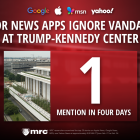The ACLU is seemingly concerned about social media censorship.
In his conversation with HuffPost, the director of the ACLU’s Speech, Privacy, and Technology Project, Ben Wizner, drew parallels to how the situation might play out if the government were in charge of determining what is considered hate speech.

“If [Attorney General] Jeff Sessions, for example, were deciding what’s hate speech, he would be less likely to think KKK and more likely to think [Black Lives Matter],” he explained. “I have some of the same concerns about platforms making those decisions.”
“Governments at least purport to be acting solely in the public interest,” Wizner asserted, “but platforms are making these decisions based on what’s in their financial interest. So their interest might be in avoiding controversy, but do we want the most important speech platforms in the world to avoid controversy?”
Wizner suggested there could be a way to balance getting rid of offensive content on the site while still allegedly not censoring individuals entirely.
“From a free expression standpoint, you would say if these platforms want to minimize the impact of the offending speech, it’s preferable to do so in a way that falls short of complete censorship,” he claimed.
On the topic of cracking down on fake news and misinformation, Wizner was allegedly sympathetic to Twitter CEO Jack Dorsey’s recent comments that he does not want the platform to be the arbiter of truth, calling it “dangerous.”
“Who should decide what’s fake? ... It’s not so easy to do in a way that is objective,” he told HuffPost. “If these platforms get in the business of trying to be the arbiters of truth or falsity, pretty soon everyone is going to have something to complain about.”
“Do we really want corporations that are answerable to their shareholders and their bottom lines being the ones who decide which political speech Americans should see or not see?” Wizner asked. “Because that’s what we’re asking for here.”
Wizner claimed the ACLU has “always been suspicious of vesting power in authorities to decide what speech is good for us.”
“Whether the censor is [Facebook CEO] Mark Zuckerberg or Jeff Sessions, progressives are being short-sighted if they think more censorship authority won’t come back to bite them,” he added.
This is not the first time the ACLU has taken a stand against social media censorship.
In July, Vera Eidelman, a fellow with the ACLU’s Speech, Privacy, and Technology Project, published a piece titled “Facebook Shouldn’t Censor Offensive Speech.”
In her article, Eidelman wrote, “Given Facebook’s nearly unparalleled status as a forum for political speech and debate, it should not take down anything but unlawful speech, like incitement to violence. Otherwise, in attempting to apply more amorphous concepts not already defined in law, Facebook will often get it wrong.”
“If Facebook gives itself broader censorship powers, it will inevitably take down important speech and silence already marginalized voices,” she continued. “We’ve seen this before.”
[ads:im:1][ads:im:2]









